- Home
- Nathaniel Hawthorne
The Procession of Life Page 2
The Procession of Life Read online
Page 2
We have summoned this various multitude--and, to the credit of our nature, it is a large one--on the principle of Love. It is singular, nevertheless, to remark the shyness that exists among many members of the present class, all of whom we might expect to recognize one another by the freemasonry of mutual goodness, and to embrace like brethren, giving God thanks for such various specimens of human excellence. But it is far otherwise. Each sect surrounds its own righteousness with a hedge of thorns. It is difficult for the good Christian to acknowledge the good Pagan; almost impossible for the good Orthodox to grasp the hand of the good Unitarian, leaving to their Creator to settle the matters in dispute, and giving their mutual efforts strongly and trustingly to whatever right thing is too evident to be mistaken. Then again, though the heart be large, yet the mind is often of such moderate dimensions as to be exclusively filled up with one idea. When a good man has long devoted himself to a particular kind of beneficence--to one species of reform--he is apt to become narrowed into the limits of the path wherein he treads, and to fancy that there is no other good to be done on earth but that selfsame good to which he has put his hand, and in the very mode that best suits his own conceptions. All else is worthless. His scheme must be wrought out by the united strength of the whole world's stock of love, or the world is no longer worthy of a position in the universe. Moreover, powerful Truth, being the rich grape juice expressed from the vineyard of the ages, has an intoxicating quality, when imbibed by any save a powerful intellect, and often, as it were, impels the quaffer to quarrel in his cups. For such reasons, strange to say, it is harder to contrive a friendly arrangement of these brethren of love and righteousness, in the procession of life. than to unite even the wicked, who, indeed, are chained together by their crimes. The fact is too preposterous for tears, too lugubrious for laughter.
But, let good men push and elbow one another as they may during their earthly march, all will be peace among them when the honorable array or their procession shall tread on heavenly ground. There they will doubtless find that they have been working each for the other's cause, and that every well-delivered stroke, which, with an honest purpose any mortal struck, even for a narrow object, was indeed stricken for the universal cause of good. Their own view may be bounded by country, creed, profession, the diversities of individual character--but above them all is the breadth of Providence. How many who have deemed themselves antagonists will smile hereafter, when they look back upon the world's wide harvest field, and perceive that, in unconscious brotherhood, they were helping to bind the selfsame sheaf!
But, come! The sun is hastening westward, while the march of human life, that never paused before, is delayed by our attempt to rearrange its order. It is desirable to find some comprehensive principle, that shall render our task easier by bringing thousands into the ranks where hitherto we have brought one. Therefore let the trumpet, if possible, split its brazen throat with a louder note than ever, and the herald summon all mortals, who, from whatever cause, have lost, or never found, their proper places in the wold.
Obedient to this call, a great multitude come together, most of them with a listless gait, betokening weariness of soul, yet with a gleam of satisfaction in their faces, at a prospect of at length reaching those positions which, hitherto, they have vainly sought. But here will be another disappointment; for we can attempt no more than merely to associate in one fraternity all who are afflicted with the same vague trouble. Some great mistake in life is the chief condition of admittance into this class. Here are members of the learned professions, whom Providence endowed with special gifts for the plough, the forge, and the wheelbarrow, or for the routine of unintellectual business. We will assign to them, as partners in the march, those lowly laborers and handicraftsmen, who have pined, as with a dying thirst, after the unattainable fountains of knowledge. The latter have lost less than their companions; yet more, because they deem it infinite. Perchance the two species of unfortunates may comfort one another. Here are Quakers with the instinct of battle in them; and men of war who should have worn the broad brim. Authors shall be ranked here whom some freak of Nature, making game of her poor children, had imbued with the confidence of genius and strong desire of fame, but has favored with no corresponding power; and others, whose lofty gifts were unaccompanied with the faculty of expression, or any of that earthly machinery by which ethereal endowments must be manifested to mankind. All these, therefore, are melancholy laughing-stocks. Next, here are honest and well intentioned persons, who by a want of tact--by inaccurate perceptions--by a distorting imagination--have been kept continually at cross purposes with the world and bewildered upon the path of life. Let us see if they can confine themselves within the line of our procession. In this class, likewise, we must assign places to those who have encountered that worst of ill success, a higher fortune than their abilities could vindicate; writers, actors, painters, the pets of a day, but whose laurels wither unrenewed amid their hoary hair; politicians, whom some malicious contingency of affairs has thrust into conspicuous station, where, while the world stands gazing at them, the dreary consciousness of imbecility makes them curse their birth hour. To such men, we give for a companion him whose rare talents, which perhaps require a Revolution for their exercise, are buried in the tomb of sluggish circumstances.
Not far from these, we must find room for one whose success has been of the wrong kind; the man who should have lingered in the cloisters of a university, digging new treasures out of the Herculaneum of antique lore, diffusing depth and accuracy of literature throughout his country, and thus making for himself a great and quiet fame. But the outward tendencies around him have proved too powerful for his inward nature, and have drawn him into the arena of political tumult, there to contend at disadvantage, whether front to front, or side by side, with the brawny giants of actual life. He becomes, it may be, a name for brawling parties to bandy to and fro, a legislator of the Union; a governor of his native state; an ambassador to the courts of kings or queens; and the world may deem him a man of happy stars. But not so the wise; and not so himself, when he looks through his experience, and sighs to miss that fitness, the one invaluable touch which makes all things true and real. So much achieved, yet how abortive is his life! Whom shall we choose for his companion? Some weak framed blacksmith, perhaps, whose delicacy of muscle might have suited a tailor's shopboard better than the anvil.
Shall we bid the trumpet sound again? It is hardly worth the while. There remain a few idle men of fortune, tavern and grog-shop loungers, lazzaroni, old bachelors, decaying maidens, and people of crooked intellect or temper, all of whom may find their like, or some tolerable approach to it, in the plentiful diversity of our latter class. There too, as his ultimate destiny, must we rank the dreamer, who, all his life long, has cherished the idea that he was peculiarly apt for something, but never could determine what it was; and there the most unfortunate of men, whose purpose it has been to enjoy life's pleasures, but to avoid a manful struggle with its toil and sorrow. The remainder, if any, may connect themselves with whatever rank of the procession they shall find best adapted to their tastes and consciences. The worst possible fate would be to remain behind, shivering in the solitude of time, while all the world is on the move towards eternity. Our attempt to classify society is now complete. The result may be anything but perfect; yet better--to give it the very lowest praise--than the antique rule of the herald's office, or the modern one of the tax-gatherer, whereby the accidents and superficial attributes with which the real nature of individuals has least to do, are acted upon as the deepest characteristics of mankind. Our task is done! Now let the grand procession move!
Yet pause a while! We had forgotten the Chief Marshal.
Hark! That world-wide swell of solemn music, with the clang of a mighty bell breaking forth through its regulated uproar, announces his approach. He comes; a severe, sedate, immovable, dark rider, waving his truncheon of universal sway, as he passes along the lengthened line, on the pale horse of the
Revelation. It is Death! Who else could assume the guidance of a procession that comprehends all humanity? And if some, among these many millions, should deem themselves classed amiss, yet let them take to their hearts the comfortable truth that Death levels us all into one great brotherhood, and that another state of being will surely rectify the wrong of this. Then breathe thy wail upon the earth's wailing wind, thou band of melancholy music, made up of every sigh that the human heart, unsatisfied, has uttered! There is yet triumph in thy tones. And now we move! Beggars in their rags, and Kings trailing the regal purple in the dust; the Warrior's gleaming helmet; the Priest in his sable robe; the hoary Grandsire, who has run life's circle and come back to childhood; the ruddy School-boy with his golden curls, frisking along the march; the Artisan's stuff jacket; the Noble's star-decorated coat;--the whole presenting a motley spectacle, yet with a dusky grandeur brooding over it. Onward, onward, into that dimness where the lights of Time which have blazed along the procession, are flickering in their sockets! And whither! We know not; and Death, hitherto our leader, deserts us by the wayside, as the tramp of our innumerable footsteps echoes beyond his sphere. He knows not, more than we, our destined goal. But God, who made us, knows, and will not leave us on our toilsome and doubtful march, either to wander in infinite uncertainty, or perish by the way!

 The Scarlet Letter
The Scarlet Letter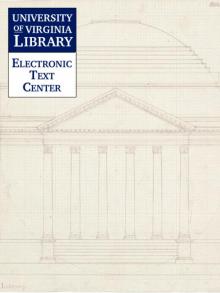 Young Goodman Brown : By Nathaniel Hawthorne - Illustrated
Young Goodman Brown : By Nathaniel Hawthorne - Illustrated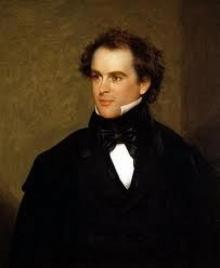 The Birthmark
The Birthmark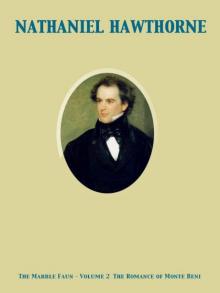 The Marble Faun; Or, The Romance of Monte Beni - Volume 1
The Marble Faun; Or, The Romance of Monte Beni - Volume 1 The Minister's Black Veil
The Minister's Black Veil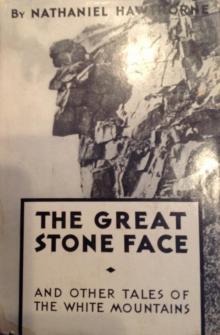 The Great Stone Face, and Other Tales of the White Mountains
The Great Stone Face, and Other Tales of the White Mountains The House of the Seven Gables
The House of the Seven Gables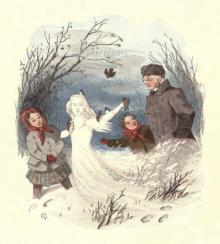 The Snow Image
The Snow Image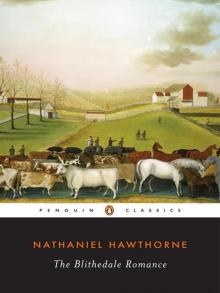 The Blithedale Romance
The Blithedale Romance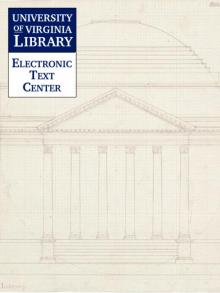 Rappaccini's Daughter: By Nathaniel Hawthorne - Illustrated
Rappaccini's Daughter: By Nathaniel Hawthorne - Illustrated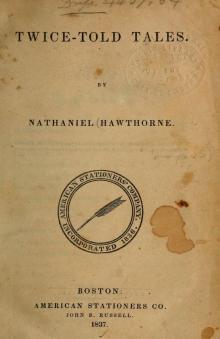 Twice-Told Tales
Twice-Told Tales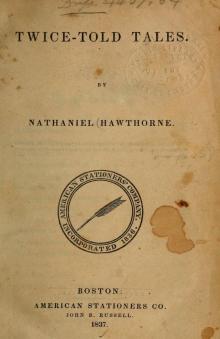 Twice Told Tales
Twice Told Tales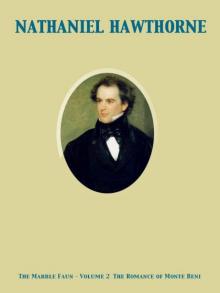 The Marble Faun; Or, The Romance of Monte Beni - Volume 2
The Marble Faun; Or, The Romance of Monte Beni - Volume 2_preview.jpg) Footprints on the Sea-Shore (From Twice Told Tales)
Footprints on the Sea-Shore (From Twice Told Tales)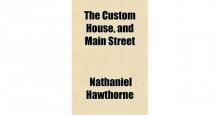 Main Street
Main Street_preview.jpg) The Seven Vagabonds (From Twice Told Tales)
The Seven Vagabonds (From Twice Told Tales) Fanshawe
Fanshawe Chippings with a Chisel
Chippings with a Chisel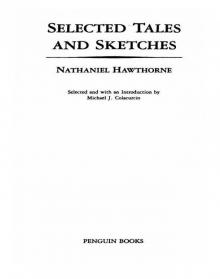 Selected Tales and Sketches
Selected Tales and Sketches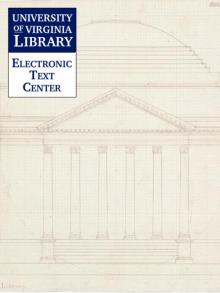 Young Goodman Brown
Young Goodman Brown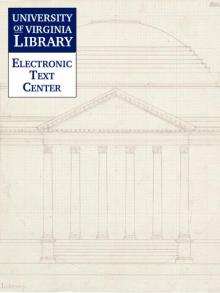 Roger Malvin's Burial
Roger Malvin's Burial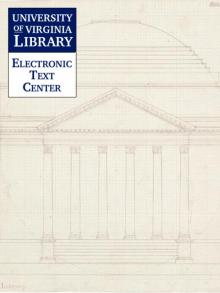 The Prophetic Pictures
The Prophetic Pictures The Village Uncle
The Village Uncle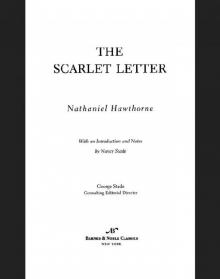 Scarlet Letter (Barnes & Noble Classics Series)
Scarlet Letter (Barnes & Noble Classics Series)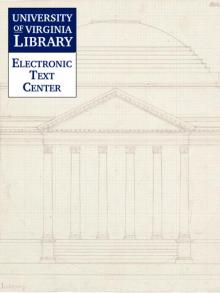 The Procession of Life
The Procession of Life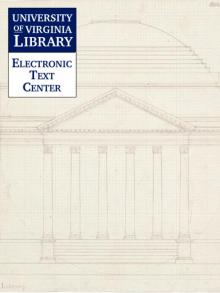 Drowne's Wooden Image
Drowne's Wooden Image Hawthorne's Short Stories
Hawthorne's Short Stories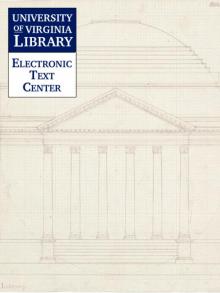 My Kinsman, Major Molineux
My Kinsman, Major Molineux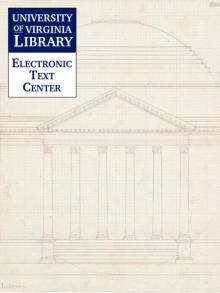 Legends of the Province House
Legends of the Province House Foot-Prints on the Sea-Shore
Foot-Prints on the Sea-Shore The Haunted Quack
The Haunted Quack Tanglewood Tales
Tanglewood Tales The Seven Vagabonds
The Seven Vagabonds Mosses from an Old Manse, Volume 2
Mosses from an Old Manse, Volume 2 The Canterbury Pilgrims
The Canterbury Pilgrims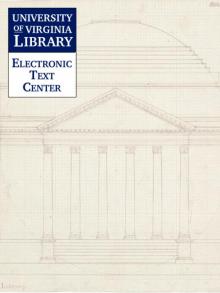 Wakefield
Wakefield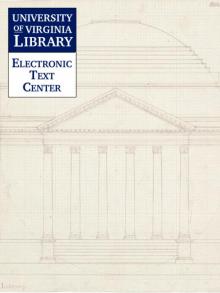 The Gray Champion
The Gray Champion The White Old Maid
The White Old Maid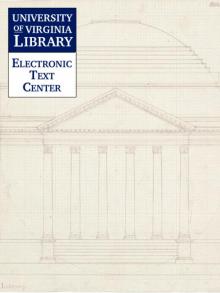 The Snow-Image: A Childish Miracle
The Snow-Image: A Childish Miracle The Gentle Boy
The Gentle Boy Mr. Higginbotham's Catastrophe
Mr. Higginbotham's Catastrophe![The Threefold Destiny: A Fairy Legend, by Ashley Allen Royce [pseud.] Read online](http://i1.bookreadfree.com/i2/04/10/the_threefold_destiny_a_fairy_legend_by_ashley_allen_royce_pseud__preview.jpg) The Threefold Destiny: A Fairy Legend, by Ashley Allen Royce [pseud.]
The Threefold Destiny: A Fairy Legend, by Ashley Allen Royce [pseud.]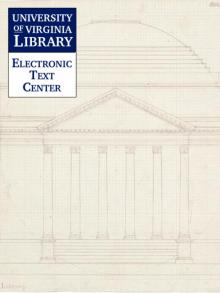 Lady Eleanore`s Mantle
Lady Eleanore`s Mantle The Great Carbuncle
The Great Carbuncle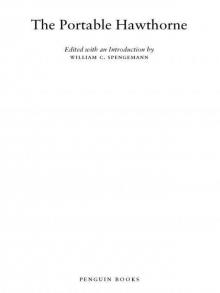 The Portable Hawthorne (Penguin Classics)
The Portable Hawthorne (Penguin Classics)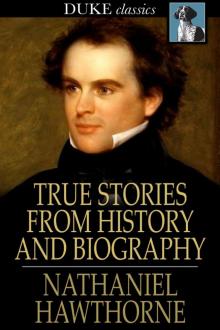 True Stories from History and Biography
True Stories from History and Biography